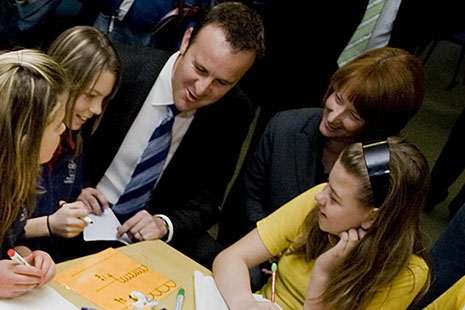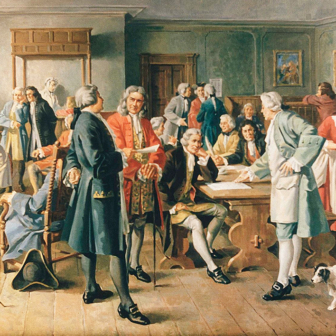NOW THAT we are moving beyond the first exultation, dismay or grim muttering – depending on your point of view – about Julia Gillard PM, it might be timely to look at what she is facing, and what kind of prime minister she is likely to be. I think her first three days have given us some interesting clues.
The moment that the events of Rudd’s fall became known, the blogosphere – and certain sections of the media – exploded with outrage and foreboding. Gillard had been ambushed by factional leaders, had capitulated, and so was beholden to the powerbrokers of the party’s right, who would henceforth be in control. She would have to be careful not to be like NSW premier Kristina Keneally, a “puppet of the factions.”
Such a view is insulting to Gillard, and it takes no account of her history. For Keneally the NSW right’s powerbrokers are an intractable problem, and given the dire position of the state government they are almost impossible to deal with. Gillard comes from the left, but having been rejected by sections of it on her way up, she learned how to make cross-factional alliances. It was her ability to form networks of influence that enabled her to gain preselection for Lalor in 1998 and to bring the necessary votes when she and Kevin Rudd toppled Kim Beazley for the leadership in 2006.
She’s enough of a political animal to be very careful about making alliances with factional blocs, knowing that their leaders are likely to demand a large deposit in their favour banks. Any suggestion that she will consider herself under some kind of payback obligation to federal union and factional leaders is nonsense. She quickly scotched that perception by taking full responsibility for what had happened – it had been entirely her decision – and by telling them that they should not necessarily expect to be rewarded.
She undoubtedly meant this. By making it impossible for her to do nothing and thereby increase destabilisation in the party and the government, they didn’t do her any favours. She would not have wanted the leadership in that way at that time. But the bounce in the polls – admittedly early honeymoon days yet – along with the relieved comments from holders of marginal seats and indications that Labor will attack Coalition seats as well as defending its own in the coming election do indicate that a change of leadership was necessary to improve Labor’s electoral fortunes.
So now she is PM. She has already moved quickly to disarm hostility in certain areas. She has acknowledged that she was not voted into the position but said she will call an election “in the months ahead.” She has damped down rising hysteria about the mining tax, leaving the way open for a deal; she has stressed the importance of a bipartisan consensus on climate change.
She is adept at moving issues from the emotive to the practical, as shown by her early handling of the immigration–population debate. Framing it in terms of sustainable population, saying she does not believe in a “big Australia,” moves the issue to one of practical economics. She has form on refugee policy, of course, having crafted Labor’s during the Beazley years. It stopped the electoral rot at the time, but in essence it wasn’t all that different from Howard’s policies.
I don’t think we’re going to see a PM who goes out on a limb on a point of principle without ensuring she can carry the electorate along with her. She’s not the left-wing ideologue demonised by the far right, but nor is she especially conservative. A lawyer by training, she’s used to calling on precedent to achieve the best possible practical outcomes.
So we probably can’t expect too much on the soaring rhetoric front. But in this age of Twitter and other social media, where every action is held up to restless scrutiny, “the vision thing” has a hard time getting a foothold. And we’re not all that comfortable with political visionaries anyway.
Julia Gillard is always described as “pragmatic.” Like “charming” or “sincere,” this is a word that often has two edges. She understands the practical realities of politics, the Labor Party is part of her political DNA, she is highly intelligent and she has shown she can be flexible. Whether these qualities are enough to make her a great prime minister remains to be seen. •




